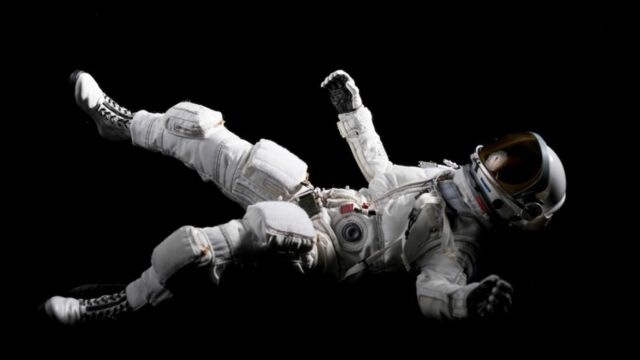Space travel is tough on the human body. Astronauts who spend months on missions often return with weakened muscles and bones, as well as an increased risk of suffering from cardiovascular disease... When they return to Earth, 100% of people who have walked on the Moon, for example, have had a mysterious disease called “lunar hay fever." New research published in the journal JAMA Network Open on November 13 has brought to light a new consequence of space missions on earthlings' bodies. Some have experienced reverse blood flow while they were on the International Space Station (ISS).
Discover our latest podcast
Blood flowing from the brain
Microgravity, which is already known to modify blood flow, is to blame. Researchers at KBR, an American engineering, procurement, and construction company, wondered if the phenomenon affected a particular vessel in the neck: the left internal jugular vein, which is starts at the bottom of the skull and stops at the collarbone. When we lie down, that's where the blood flows. When we stand up, however, to prevent too much blood from flowing from the head, this flow takes a different path.
Changes in the direction of blood circulation have already been observed on Earth. But those affected had a blockage lower down - such as a tumour in their chest - that explained this deviation.
The first case of thrombosis
Back on Earth, scientists scanned the veins of nine healthy men and two women, before and after their six-month (on average) mission on the ISS. The astronauts also took their measurements themselves, on the 50th and 150th days of their mission. In the end, two space travellers' blood flow was reversed. "Perhaps because the lack of gravity caused organs in the chest to shift around, pressing on the vein lower down," Karina Marshall-Goebel, author of the study, told NewScientist.
Five other crew members' blood flow was more or less stagnant in the vein, that is to say, it flowed with some difficulty. One of their scans revealed a clot blocking the vessel. This is also known as thrombosis. "That was definitely alarming," said Karina Marshall-Goebel. If they move to the lungs, these clots can cause pulmonary embolism and be fatal. The passenger concerned had to take blood thinners.
In an environment where gravity is almost absent, the proper functioning of the left internal jugular vein can be hampered, the researchers discovered. "Humans have been flying in space for more than 50 years, yet this is the first report of venous thrombosis during spaceflight, to our knowledge," they wrote in the study. More research on the subject will, therefore, be necessary before we can set foot elsewhere.On planet Mars, for example.















